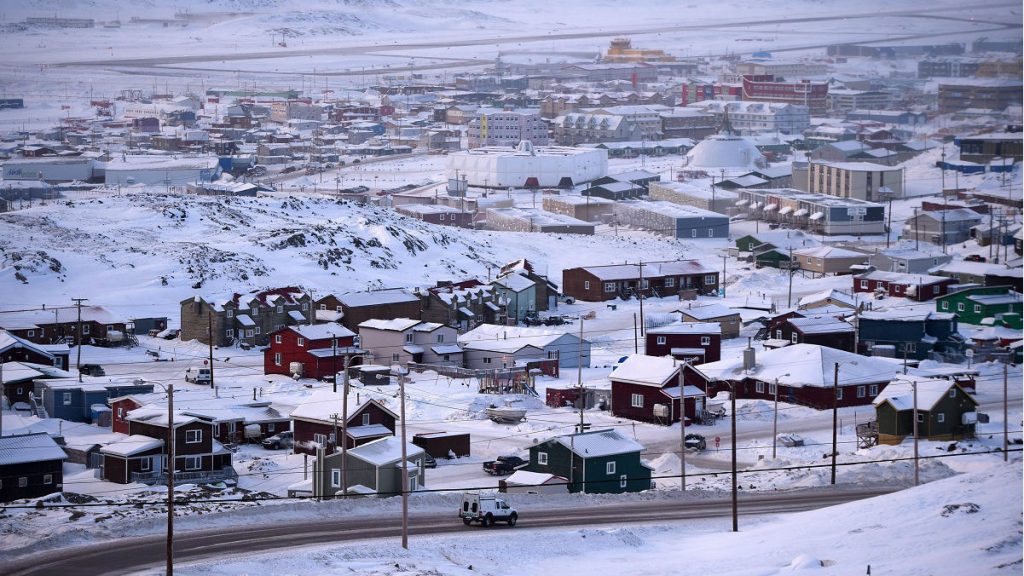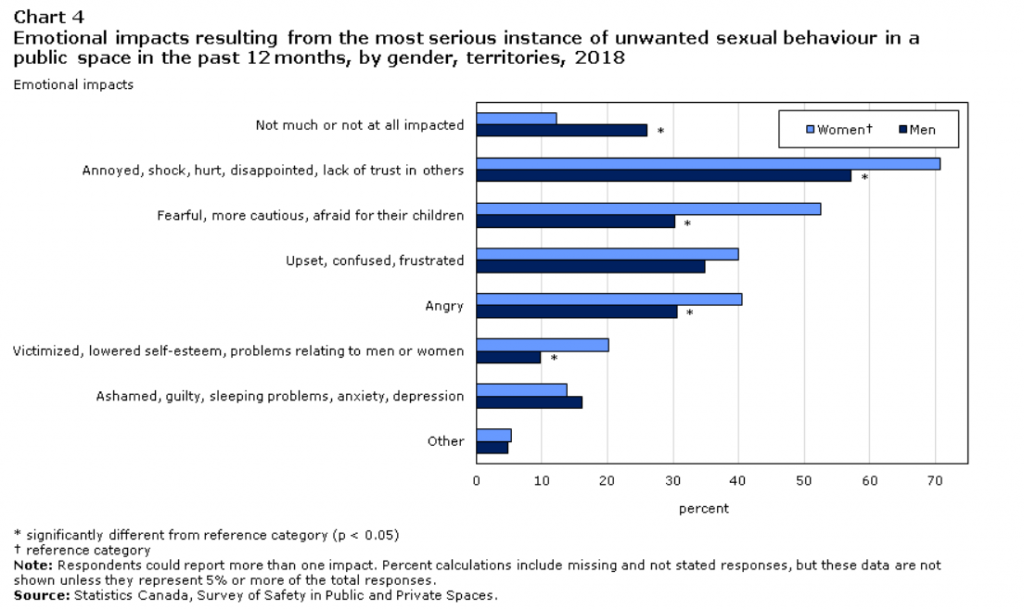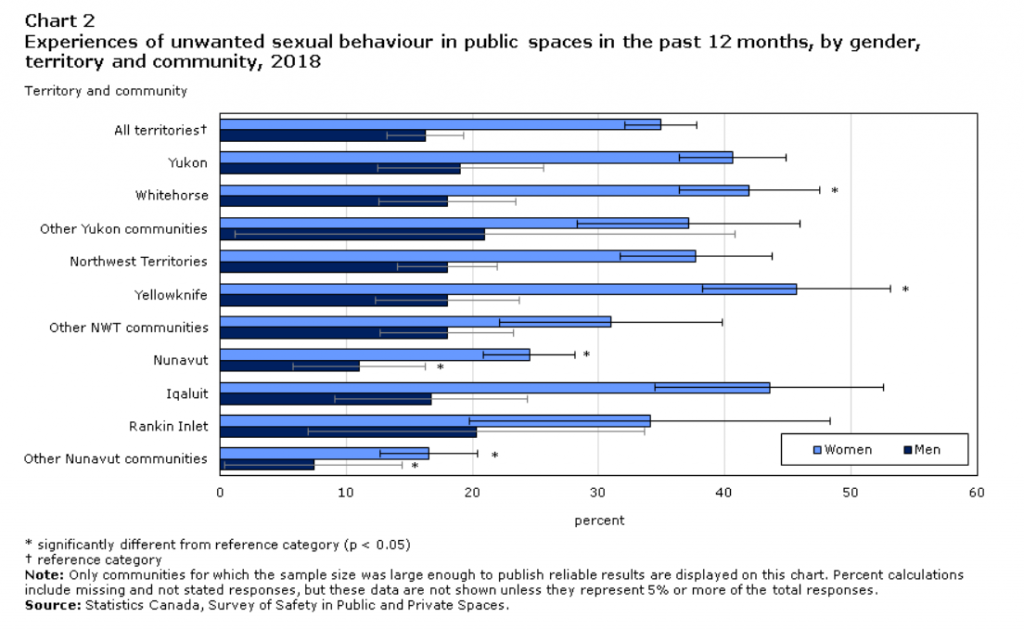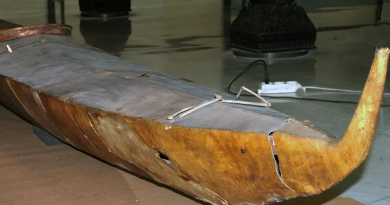Nearly half of woman in northern Canada experience unwanted sexual behaviour: Statistics Canada

Nearly half of woman in Canada’s northern territories, and nearly one third of men, experienced unwanted sexual behaviour in public, in the workplace or online in 2018, says Statistics Canada.
The agency released the findings from their Survey of Safety in Public and Private Spaces (SSPPS) on Wednesday in an article titled “Gender-based violence: Unwanted sexual behaviours in Canada’s territories, 2018.”
Their data found that 48 per cent of women and 32 per cent of men in Canada’s northwestern Yukon territory, the neighbouring Northwest Territories or the eastern Arctic territory of Nunavut, experienced some kind of inappropriate sexual behaviour.
“For both women and men who experienced unwanted sexual behaviour in a public space and unwanted sexual behaviour online, the perpetrator was most often a man acting alone,” the report said.
“Women who experienced unwanted sexual behaviour in a public space were more likely to have been targeted by a stranger (70 per cent). Among men, the opposite was true: most often, a person known to them was responsible for unwanted sexual behaviour.”
The survey measured different types of unwanted public sexual behaviour ranging from unwanted comments, gestures, whistles and suggestive looks to indecent exposure or unwanted touching.
Emotional impacts
The survey also found the frequency of the unwanted behaviour had long term effects on a person’s mental health.

“People who are targets of repeated instances of gender-based violence were more likely to experience negative consequences,” the report said.
“For example, 41 per cent of women and 42 per cent of men who had been targets of multiple instances of unwanted sexual behaviours in a public space said that they now avoid certain people or situations, compared with 24 per cent of women and 9 per cent of men who experienced these behaviours once or twice. Those who experienced multiple unwanted sexual behaviours in public spaces were also more likely to rate their mental health as poor or fair and to have contemplated suicide.”
Indigenous people in North report less inappropriate sexual behaviour than in the South
Data found that in southern Canada, Indigenous people reported higher rates of inappropriate sexual behaviour in public spaces than non-Indigenous people. Forty per cent of Indigenous women and 20 per cent of Indigenous men reported such behaviour, compared to 31 per cent of non-Indigenous women and 13 per cent of non-Indigenous men.
In the three northern territories however, that data found that things were inversed with 29 per cent of Indigenous women reporting at least one instance of inappropriate sexual behaviour in public compared to 41 per cent of non-Indigenous women.
“Probably because they have more public spaces with a higher volume and density of people, the prevalence of inappropriate sexual behaviour in a public place is generally higher in urban areas,” the report said. “Also, urban areas may have a higher degree of anonymity compared with rural areas, where people are more likely to know one another and familiarity or interconnectedness may dissuade certain behaviours. Incidentally, 70% of women in the territories who experienced unwanted sexual behaviours in a public space indicated that the perpetrator was a stranger or someone known by sight only.”
Nunavut women less likely to experience public harassment
Survey results found that women in Nunavut were less likely to experience unwanted sexual behaviour in public than women in Yukon or the Northwest Territories, despite Nunavut having the highest sexual assault rate out of all three territories, and a rate six times the national average.
“A relatively high incidence of inappropriate sexual behaviour could be expected in regions with higher rates of sexual assault,” the report says. “SSPPS findings about Nunavut, specifically, seem to challenge this assumption.”

Instead, the data shows that 25 percent of Nunavut women reported at least one instance of unwanted sexual behaviour in public compared to 38 per cent of women in the Northwest Territories and 41 per cent of women in Yukon.
The report said this could be explained by the fact that 83 per cent of Inuit women live in small communities outside the territorial capitals where public harassing behaviour is tempered by the small populations of the communities where most people know each other. However, the report also said the behaviour may be under-reported in Nunavut.
“Some studies have highlighted a normalization of violence among some Inuit women, which could have contributed to an under-reporting of some inappropriate sexual behaviours, especially in cases where the violent or threatening nature might have been less clear.”
Write to Eilís Quinn at eilis.quinn(at)cbc.ca
Related stories from around the North:
Canada: Women in Northern Canada travel farthest to access domestic violence shelters, CBC News
Finland: Swedish-speaking Finnish women launch their own #metoo campaign, Yle News
United States: Alaska reckons with missing data on murdered Indigenous women, Alaska Public Media



